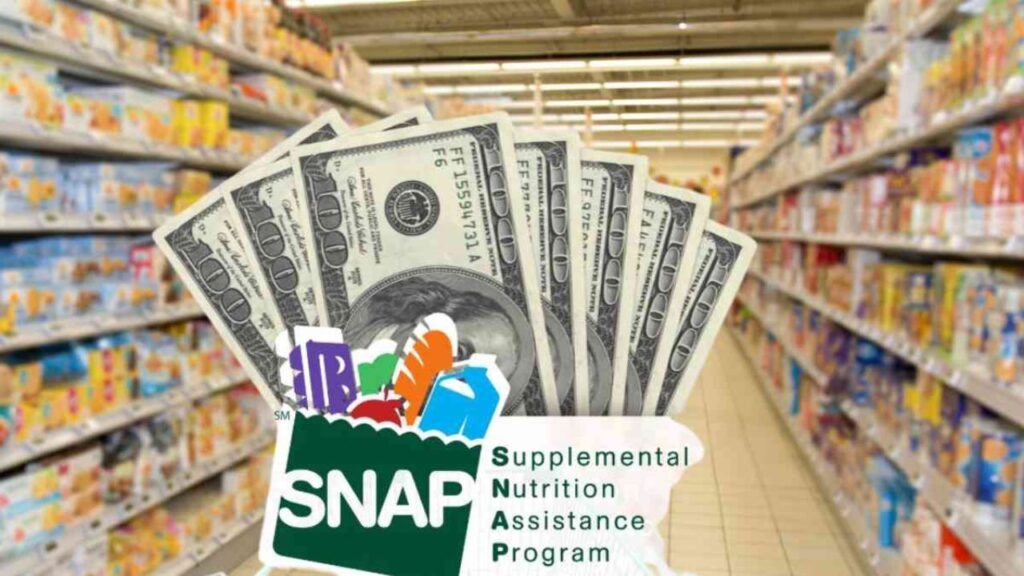The Supplemental Nutrition Assistance Program (SNAP) is a food assistance program in the United States that ensures food for millions of people. This program is specifically designed for families and individuals facing low incomes or financial hardships. The One Big Beautiful Bill, Act of 2025, recently signed by President Donald Trump, makes major changes to the program, effective in September 2025. These reforms will most impact those known as Able-Bodied Adults Without Dependents (ABAWDs), meaning adults who do not have any children or dependents.
20-Hour Weekly Work Rule
The new regulations means that adults aged below 55 years and have not had children or any dependants are now required to work at least 20 hours a week (or 80 hours a month). Another option to work is that they can volunteer with a training program or community service organization. In case a beneficiary does not comply, he or she will only get SNAP benefits after three months out of the three years. This is regarded as a very strict rule that is meant to encourage individuals to work or train.
New categories also covered
The veterans and people aged 55 to 64 will also be subjected to 20 hours of work or community service as the rule was not applicable to them before. This reform will have specific impacts especially to those veterans and military men and women who are already struggling to secure employment.
New Definition of “Dependent”
Until now, children were considered dependents until they reached the age of 18. However, under the new provisions, this threshold has been lowered to 7 years. This means that parents of children over 7 must now comply with work or service rules. This change will directly affect families with school-age children who previously received exemptions.
Stricter Rules for Migrant Families
Under the new budget law, accessing SNAP will become more difficult for some migrant and refugee families. Groups that previously had easy access to food assistance will now face more requirements. This could further exacerbate the difficulties faced by migrant families.
Who will be exempt?
However, certain categories are exempt from the new rules. These include:
- Those with a weekly income of more than $217.50
- Pregnant women.
- Individuals with disabilities.
- People caring for children under 6 or individuals with disabilities.
- People in drug rehabilitation programs.
- Homeless individuals, part-time students, and former foster care youth.
These groups will still receive SNAP benefits easily.
Federal Cuts and Burden on States
According to the Congressional Budget Office, SNAP spending will be reduced by $186 billion over the next 10 years. This will directly impact states. They will receive less federal assistance despite increased demand. This historic change could put significant strain on state policies and resources.
Maximum SNAP Benefit Amount by September 2025

SNAP benefits are capped based on family size. The new maximum amounts, effective until September 30, 2025, are as follows:
- 1 person: $292
- 2 people: $536
- 3 people: $768
- 4 people: $975
- 5 people: $1,158
- 6 people: $1,390
- 7 people: $1,536
- 8 people: $1,756
- Per additional person: $220
This list clearly shows that the assistance amount for larger families has been significantly increased.
Resources available for beneficiaries
The government has launched several programs to help beneficiaries comply with the new rules. These include:
- SNAP Employment & Training (E&T): Workshops on job search, training, and resume building.
- Community Service Program: Work experience at local nonprofits and schools.
- JETS Training: Training in health, culinary, and technical fields.
- Additional Benefits: Transportation, childcare, and work-related expenses covered.
- Educational Options: Enrollment in community college or certificate courses.
In addition, state websites, local SNAP offices, and the national helpline will provide ongoing guidance.
Conclusion
The new SNAP regulations will change the lives of many individuals significantly since they will be in effect in September 2025. This program may be difficult due to stricter work rules, new definitions and other pressure on the immigrant families. Nevertheless, perks, such as training and education will also give individuals an opportunity to be self-sufficient. Whether these changes will really render people more self-reliant or will lead to further worsening of the struggles in the already struggling families will be interesting to observe in the coming years.
FAQs
Q1. What is the maximum SNAP benefit in September 2025?
The maximum benefit is $1,756 for a household of 8, with $220 added for each extra person.
Q2. Who must follow the 20-hour weekly work rule?
Able-bodied adults under 55 with no dependents must work, train, or volunteer at least 20 hours per week.
Q3. Who is exempt from the new SNAP work requirements?
Pregnant women, people with disabilities, caregivers of young children or disabled adults, homeless individuals, and those in rehab programs are exempt.
Q4. How has the definition of “dependent” changed?
Children are now considered dependents only up to age 7, instead of 18.
Q5. How much will SNAP funding be cut over the next decade?
The Congressional Budget Office projects a $186 billion cut over 10 years.
